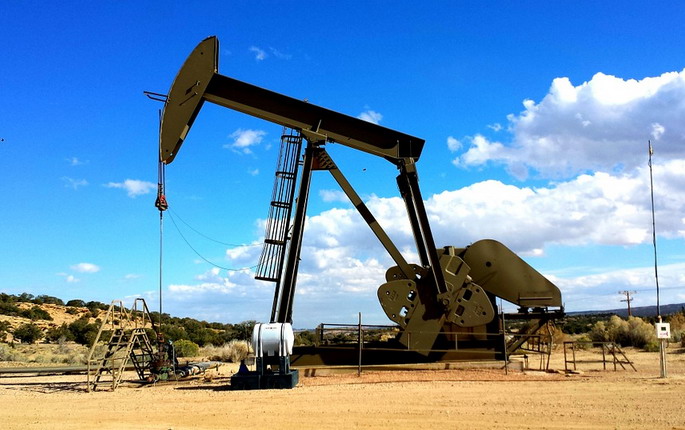Pros And Cons Of Petroleum

Among all fossil fuels used today on the planet, petroleum is the main component for a large number of products that are manufactured and used by several industrial sectors such as the transportation sector, energy sector, chemical sector, pharmaceutical sector, textile sector, etc.
What is Petroleum?
Petroleum is a liquid mixture of hydrocarbons that can be found in certain rock strata, and can be extracted and refined to produce fuels such as gasoline, kerosene and diesel.
Petroleum is the main ingredient for a wide range of chemical products such as: solvents, fertilizers, pharmaceuticals and plastics.
Being a key ingredient for many industries, petroleum also has a critical importance for many nations across the planet because this fossil fuel sits at the foundation of their industries.
The petroleum industry, also known as the oil industry, is responsible for the global processes of exploration, extraction, refining, transporting and marketing of petroleum products.
The largest volumes of products of the oil and gas industry are represented today by fuel oil and gasoline.
According to Statista, in 2020, mankind uses about 101 million barrels of oil per day, and the demand will continue to grow despite the fact that we need to reduce the use of fossil fuels on the planet in order to decrease the level of air, water and soil pollution.
The demand of petroleum increases every year, because we are still using and buying conventional vehicles on a large scale.
These vehicles release a large amount of greenhouse gas emissions into the atmosphere because their engines burn fossil fuels such as gasoline or diesel fuel.
Air pollution produced by vehicles is a major concern, especially in big cities where the huge number of people living there usually own more than one conventional vehicle per family.
Pros of Petroleum
Petroleum also known as oil or crude, is a fossil fuel that helped mankind reach its current level of development, but at the same time, it heavily polluted the environment, which means that has more drawbacks than benefits.
1. Is A Reliable Energy Source
Compared to solar or wind energy, petroleum is a very reliable source of power because once we have the supply, it can generate energy 24/7.
An oil-fired power plant can produce the same amount of energy every day, once the supply of petroleum is ensured.
With solar energy, we don’t get the same reliability (like the one provided by petroleum), because the solar modules installed on the roof will generate less energy in cloudy days.
Wind power has the same issue because the wind doesn’t blow with the same speed every day, and due to this reason, we don’t know exactly how much power can our wind turbine generate during a 24 hour period.
We can only estimate the power production, but we can never be sure because both these clean sources of power (solar and wind energy) are very dependent on the weather.
2. Is the Main Fuel Used By the Transportation Sector
Petroleum is the main ingredient found in fuels like gasoline, kerosene and diesel, which means that the transportation sector using engines with internal combustion relies mainly on petroleum to power its vehicles.
Airplanes still fly today using kerosene (a jet fuel obtained from petroleum), ships still use today three types of fuels such as: Heavy Fuel Oil (HFO), diesel oil and Low Sulfur Fuel Oil (LSFO) to navigate around the world.
However, the highest demand of petroleum for fuels production is generated by the extremely large number of conventional vehicles (1.32 billion in 2020) consisting of cars, buses and trucks on the road today.
3. Can Be Transported Relatively Easily
To transport petroleum and its byproducts on long distances, we are using tank trains and tank trucks, which are relatively safe to use for the transportation of this flammable fossil fuel.
To transport petroleum on the sea around the world, we are using petroleum tankers that can transport a huge volume of this liquid fossil fuel between the continents.
4. Burns Cleaner Than Coal
Compared to coal, oil or petroleum is a much cleaner fossil fuel because while burning, it releases fewer particulates, less sulfur and a smaller amount of greenhouse gas emissions (carbon monoxide, carbon dioxide and nitrogen oxides).
Releasing about 14% less CO2 emissions than coal (for the same amount of energy/heat produced or work done), is considered a cleaner fossil fuel.
5. Extraction of Petroleum is Quite Safe Today
Today, the technology used to extract petroleum from the underground reservoir (both onshore and offshore) has evolved and now is almost entirely mechanized, which reduces the risks of being injured in the process for the workers.
Offshore wells are drilled by oil companies to discover under sea reservoirs of petroleum and gas, but to protect the marine environment around the well from possible oil spills, a blowout preventer (BOP) is installed on the top of the well.
A BOP is a large specialized safety device used to seal, control and monitor wells to prevent an uncontrolled release of fluid during the drilling and the extraction process.
Once the well is depleted, is sealed with cement (well abandonment) to stop any spills in the seabed.
6. Petroleum Storage Is Safe And Does Not Produce Energy Loses
When we store solar or wind power in batteries, we have to use that energy in a couple of days to avoid losing it (batteries discharge in time).
However, this is not the case when we store petroleum and its byproducts.
We can store petroleum based fuels in sealed reservoirs for longer periods of time (years), without losing their capacity to generate energy and heat.
7. Petroleum Is A Fuel With High Energy Density
Despite the fact that petroleum or crude oil is cleaner than coal (releases less greenhouse gas emissions when burning), it also has a higher energy density.

Energy density of fossil fuels.
If anthracite coal produces 33 MJ/kg, petroleum produces 42.7 MJ/kg, which means that petroleum is better than coal (produces more power and is cleaner).
8. Petroleum Is Used Today As A Remedy In Homeopathy
Petroleum is used today in homeopathy to treat skin problems (dry, cracked skin), on the scalp to treat eruptions on the scalp, to treat lice infestations and loss of hair.
Petroleum is also used as a remedy for motion sickness (when traveling by car, boat or plane).
This complex mixture of hydrocarbons is used as feedstock for pharmaceuticals and medical supplies, and also as a primary transport fuel for patients, medical staff and supplies.
Cons of Petroleum
Being a limited resource that also pollutes the environment, petroleum has many drawbacks.
1. Is A Major Source Of Air Pollution
Being used as a fuel source for all the vehicles with internal combustion engine on the planet (cars, buses, trucks, ships, airplanes, etc.), petroleum is the reason why the transportation sector is responsible for the massive amount of air pollution produced in cities and on high traffic roads.
Air pollution affects the life of the people living in towns or close to a road with high traffic, and is also a major contributor to global warming and climate change.
2. Petroleum Refining Is A Pretty Complex Process
Oil or petroleum refineries are major industrial process plants used to refine and transform crude oil into more useful products such as: kerosene, gasoline, diesel fuel, heating oil, petroleum naphtha, asphalt base, liquefied petroleum gas, fuel oils, etc.
3. Oil Spills Are Potential Anywhere
Despite the security measures taken to protect the oil extraction process on land and on the sea, oil spills can occur to pollute the soil or the seawater.
Transporting petroleum on land using tank trains or tank trucks can produce a spill in case of an accident.
The oil spill produced in case of a road accident can pollute the ground and also the water located close to the road.
When we transport petroleum on the sea using petroleum tankers, in case of an accident (ship sinking, fire on board, an explosion on board of the tanker, etc.) can lead to a massive oil spill in the marine environment.
Oil spills always destroyed habitats and killed birds and marine life by covering a large area of the sea with crude oil.
4. Is A Limited Resource
Being a fossil fuel like coal and natural gas, petroleum or crude oil is a limited resource (non-renewable), which means that one day will be depleted.
The largest oil reserves are concentrated in a reduced number of countries such as: Venezuela (300 billion barrels), Saudi Arabia (265 billion barrels) and Canada (a non-OPEC nation that holds 173 billion barrels).
The today’s proven oil reserves will be enough for about another five decades (by 2070).
However, if mankind switches to renewable energy sooner, oil reserves can remain unused.
5. Petroleum Drilling Raises Environmental Concerns
If an oil company wants to drill a new well near homes, in the sea, protected areas, or in other sensitive areas, there always be environmental concerns raised to their activity.
Wherever we have oil activity (extraction, transportation, etc.), there is always a chance to have an oil spill, which will affect habitats and destroy wildlife or marine life living there.
6. Petroleum Byproducts Also Pollute the Environment
Petroleum and its byproducts are both affecting the environment due to the mix of hydrocarbons (paraffins, naphthenes, and aromatics) in their chemical structure.
Fuels like kerosene, gasoline, diesel, heating oil, etc., are all responsible for the massive amount of air pollution produced every year on the planet.
Plastics made of petroleum are polluting the oceans and the land where people don’t understand that plastic waste should be properly disposed.
7. Petroleum Can Create Numerous Disputes Between Countries
Being an energy source highly wanted on the planet, petroleum creates even today numerous disputes between major oil producers, that affects the oil market pretty much.
In April 2020, we have a dispute between Saudi Arabia and Russia (the biggest oil exporters on the market today), in which Saudi Arabia lowered the price of the oil barrel to less than $30, just to squeeze Russian and American shale drillers out of the market.
Conclusion
Petroleum is still the energy source that powers all the economies of the planet, but due to the fact that mankind slowly shifts to renewable energy, the use of petroleum and other fossil fuels will slowly decrease to help the environment heal after more than a century of air, soil and water pollution.







